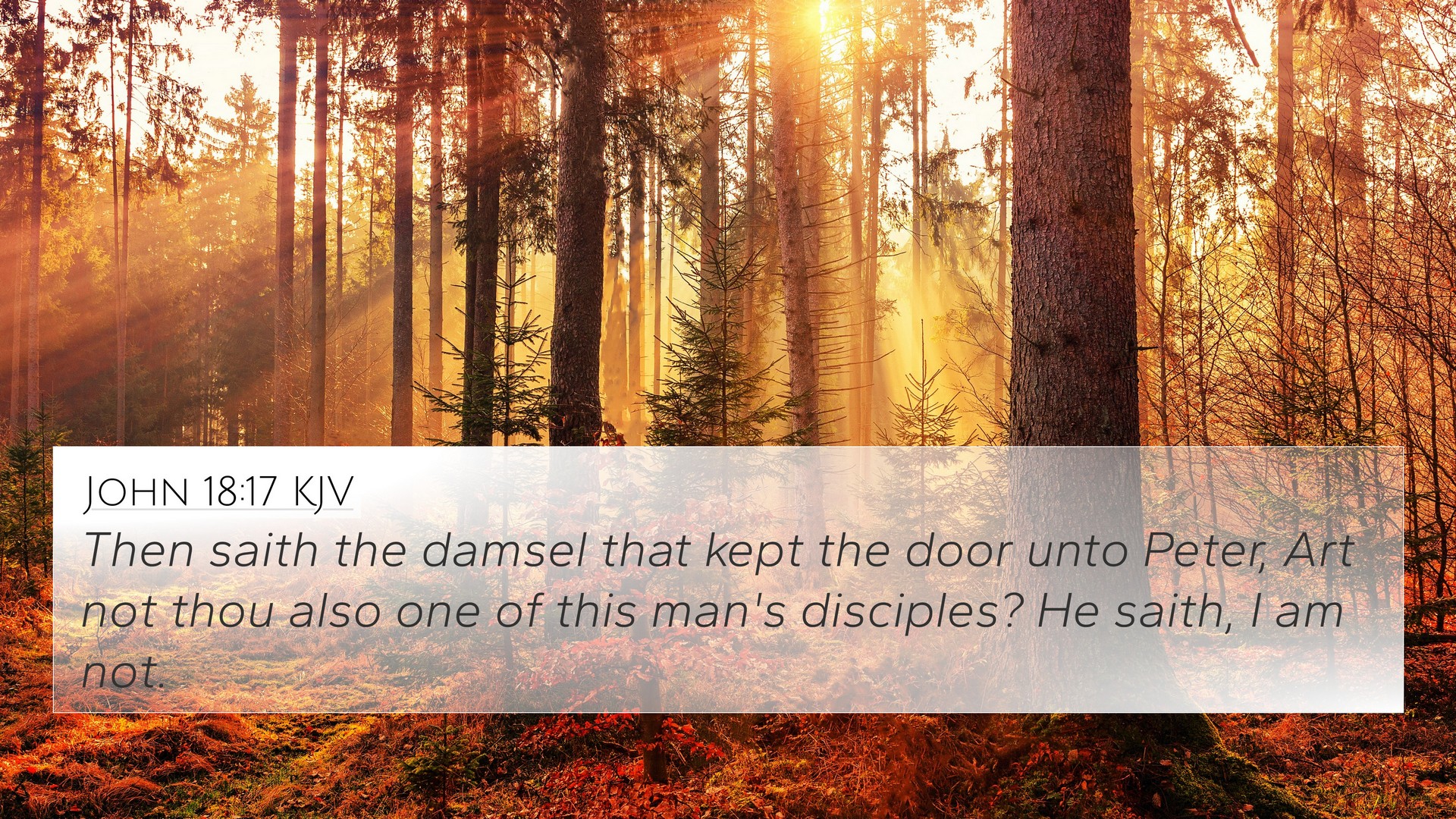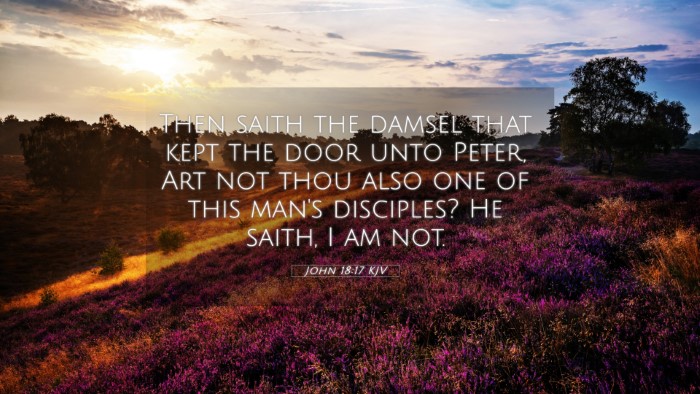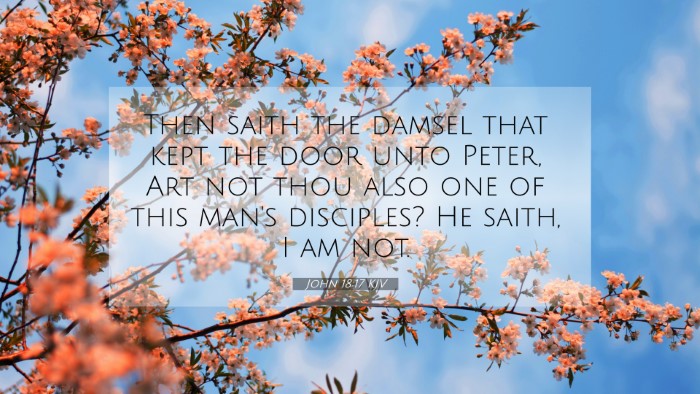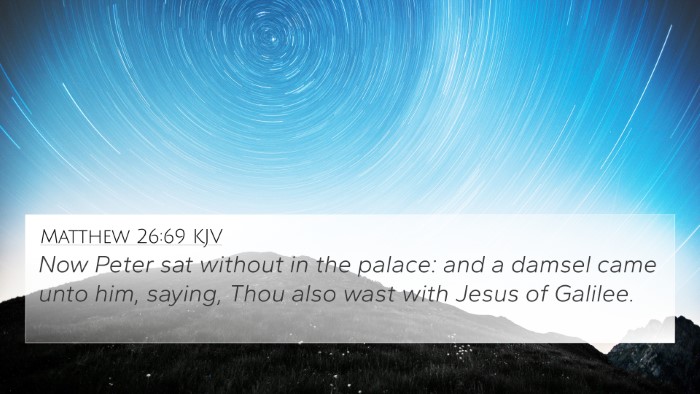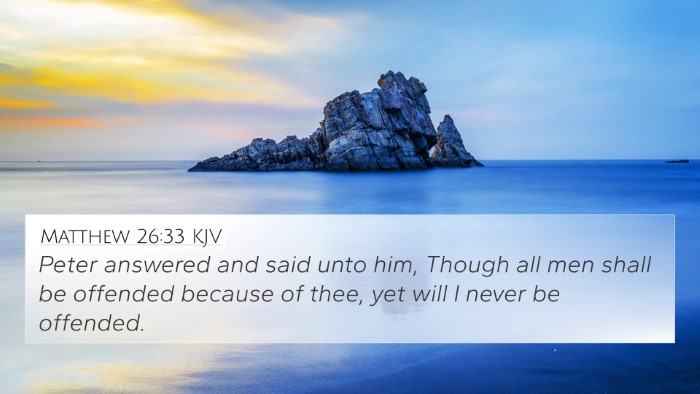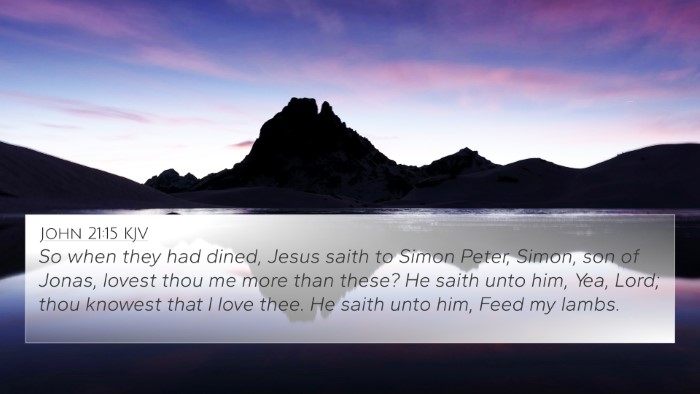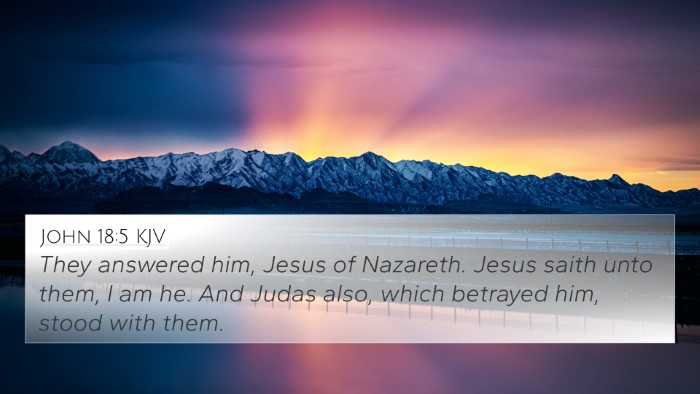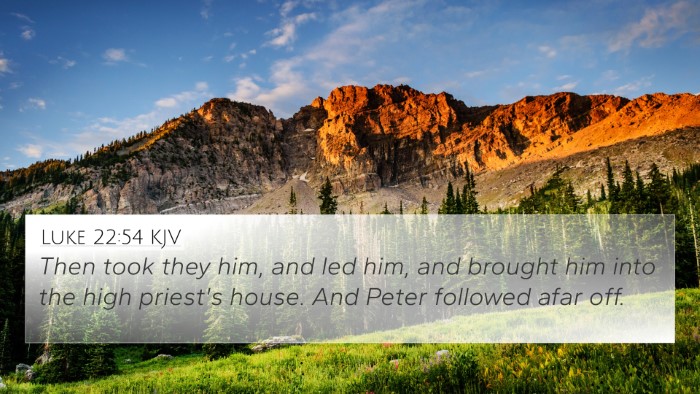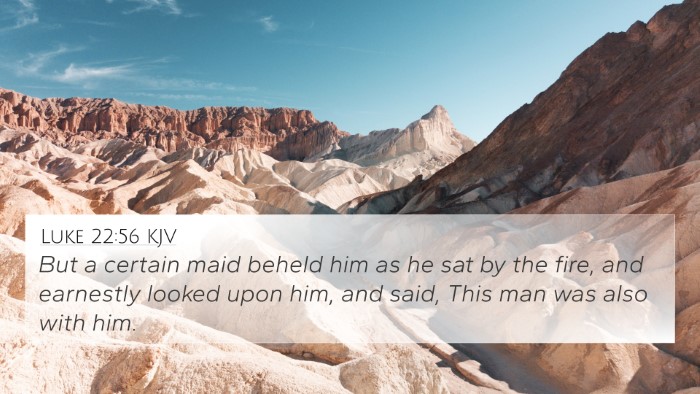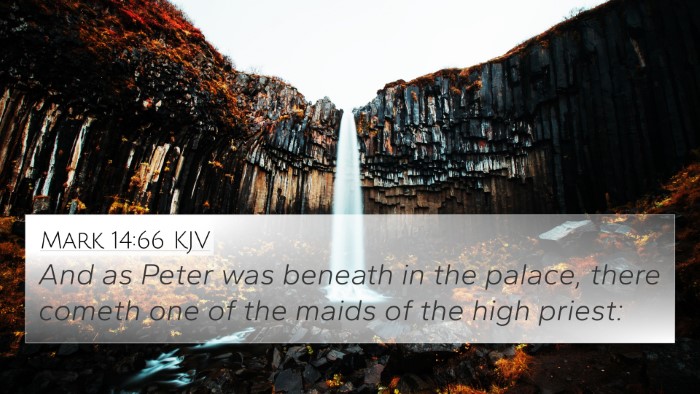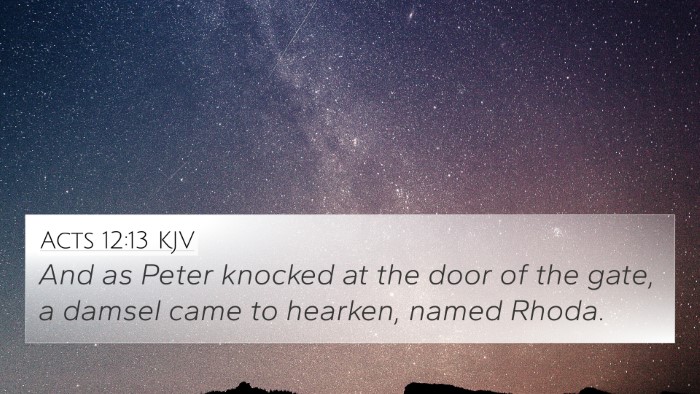Understanding John 18:17
John 18:17 states: "Then the maid that kept the door said unto Peter, Art not thou also one of this man's disciples? He saith, I am not." This verse marks a pivotal moment in the narrative of Jesus' arrest and Peter's subsequent denial. It serves not only as a narrative device but also as a profound reflection on human fear, loyalty, and the fragility of faith.
Contextual Analysis
To fully grasp the meaning of John 18:17, it is essential to consider the surrounding context. This verse occurs during the trial of Jesus after His arrest. Here is where Peter, one of Jesus' closest disciples, faces his own moment of truth.
Matthew Henry's Commentary Insights
According to Matthew Henry, this verse illustrates Peter's vulnerability. Despite his earlier vows of allegiance, Peter succumbs to fear and denies his association with Jesus. Henry emphasizes that this moment of denial highlights the contrast between the bravery professed by the disciples and the reality of human frailty.
Albert Barnes' Commentary Insights
Albert Barnes points out that the question asked by the maid signifies the beginning of Peter's denial trajectory. He suggests that this denial serves as a warning to Christians about the importance of steadfastness in faith. Barnes insists that Peter’s response—"I am not"—is not merely a statement but a chilling capitulation to fear and societal pressure.
Adam Clarke's Commentary Insights
Adam Clarke presents a psychological aspect to Peter’s denial. He notes that in that moment, Peter was overwhelmed by the danger surrounding him. Clarke argues that this incident reflects a broader theme in the Gospel of John regarding the tension between faith in Christ and the external pressures that challenge that faith.
Biblical Cross-References
This verse resonates with several other scripture passages, establishing a network of connections within the Bible:
- Matthew 26:69-75 - The full account of Peter's denial, showcasing the prophecy of his denials before the rooster crows.
- Luke 22:54-62 - Provides additional detail regarding Peter’s second and third denials and his subsequent weeping after realizing the fulfillment of Jesus’ prophecy.
- John 13:38 - Jesus foretells Peter’s denial, expressing certainty about Peter’s future behavior.
- Mark 14:66-72 - Another account of Peter's denial that includes specific details about the maid and the crowing of the rooster.
- Matthew 26:33-35 - Highlighting Peter's bold declarations of loyalty contrasted with his eventual denial.
- John 16:1 - Jesus mentions the need for His followers to remain steadfast amidst the persecution that would come after His departure.
- John 21:15-19 - The context of Peter's restoration after the resurrection, emphasizing the idea of redemption following denial.
- 2 Timothy 1:7 - Encouragement that God provides strength and courage, contrasting with Peter's fear-driven response.
- Romans 8:31-39 - Paul’s assurance that nothing separated believers from the love of God, relevant in Peter's moment of weakness.
- Philippians 4:13 - Reassurance that one can do all things through Christ, a counterpoint to moments of denial and fear.
Thematic Bible Verse Connections
The theme of fear leading to denial is echoed throughout scripture, presenting a rich tapestry of human experiences reflecting our struggles. Below are some significant themes and inter-Biblical dialogues related to John 18:17:
- Human frailty in moments of pressure.
- The contrast between verbal commitment and actual behavior in the face of trials.
- The necessity of divine strength to remain faithful.
- Redemption and restoration following failure.
Conclusion
John 18:17 serves as a critical reminder for believers about the nature of faith, fear, and the ever-present possibility of denial. It invites readers to reflect deeply on their commitment to Christ amid challenges, encouraging a reliance on divine assistance to overcome fear and stand firm in faith. Through effective Bible cross-referencing, one can draw strength from the interconnected narratives of scripture, finding hope and restoration in God's unwavering love.
